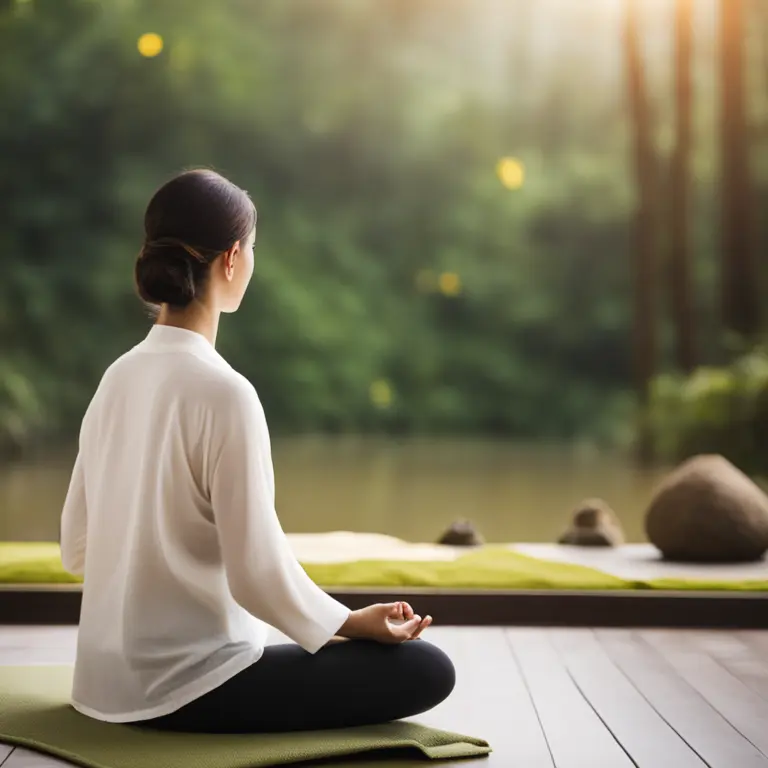
Discovering A Beginner's Guide to Mindful Meditation
Discover the fundamental steps to start practicing mindful meditation and embrace a journey toward inner peace.
article by Hina Kurosawa
Introduction to Mindfulness
Mindfulness is a form of meditation that encourages you to bring your attention to experiences occurring in the present moment without judgment. In the ever-advancing year of 2024, where technology and busy lifestyles can lead to heightened stress, mindfulness meditation offers a sanctuary of peace. By learning to pay attention to thoughts, feelings, and sensations without criticism, one can cultivate a state of awareness that enables a balanced and centered approach to life.

Finding a Comfortable Space
Before embarking on your meditation journey, find a quiet and comfortable place where you can sit or lie down without interruptions. This space doesn't have to be fancy or specifically designed for meditation; it only needs to be a place where you can relax without distraction. Ensure that you can maintain a comfortable posture for the duration of the meditation – comfort is key to maintaining focus.

Setting a Time Limit
For beginners, it's beneficial to start with short, manageable sessions to build the habit. A meditation practice of just five to ten minutes each day can make a significant difference. As you become more acquainted with the process, you can gradually extend the duration. In today's fast-paced world, even brief moments of meditation can serve as a valuable tool for mental clarity and emotional stability.

The Basics of Breathing
Central to mindfulness is breath awareness. Pay close attention to the natural rhythm of your breath, the way your body moves with each inhale and exhale. The goal isn't to alter your breathing but to observe it. Recognize when your mind wanders to other thoughts and gently redirect your focus back to your breathing. This act of returning to your breath is where the practice strengthens your mindfulness muscle.

Embracing the Wandering Mind
A common misconception is that meditation requires a completely clear mind. However, it's natural for your mind to wander. Rather than wrestling with your thoughts or berating yourself, simply acknowledge that your mind has wandered, and kindly guide your attention back to your breath. This accepting attitude is at the heart of mindfulness practice: observing without criticism.
Incorporating Mindfulness into Daily Life
Mindfulness isn't limited to your meditation sessions; it's a skill that can enhance your entire day. Try applying mindfulness to simple activities like eating, walking, or listening to music. Pay attention to the colors, textures, sounds, and scents around you. Mindfulness enriches your daily experiences, providing a greater sense of connection and joy in the present moment.
Continuing Your Practice
Consistency is crucial when it comes to meditation. Set a regular schedule for your practice and stick to it as best you can. Some days will be easier than others, but perseverance is what cultivates a deeper level of mindfulness. As mindfulness becomes an integral part of your life, you'll notice increased resilience against stress and an enhanced capacity for happiness and contentment.
Published: 1/18/2024
Modified: 1/18/2024
More predictions
Come back here soon to learn more about yourself and your future


Can Meditation Manage Depression?
Discover how meditation can contribute to managing depression, its potential benefits, and the connection between mindfulness and mental health.


Can Meditation Impact On Depression?
Meditation can be a powerful tool for mental health. Discover whether incorporating a meditation practice can alleviate depressive symptoms.


The Significance of Modern Meditation
Discover the crucial role meditation plays in fostering well-being, focus, and balance in today's fast-paced world.